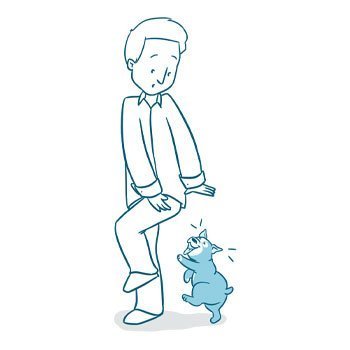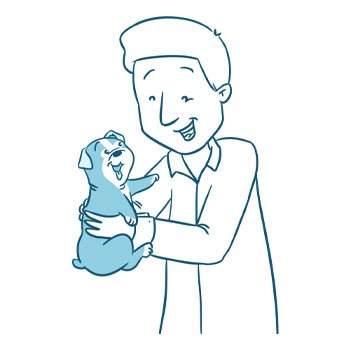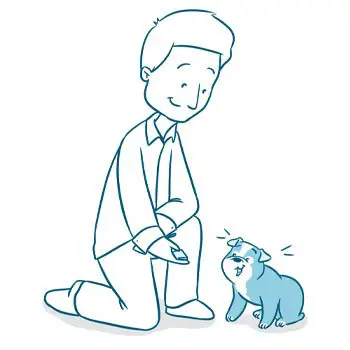Best Ways to Deal with Dog Anxiety – Top Calming Remedies
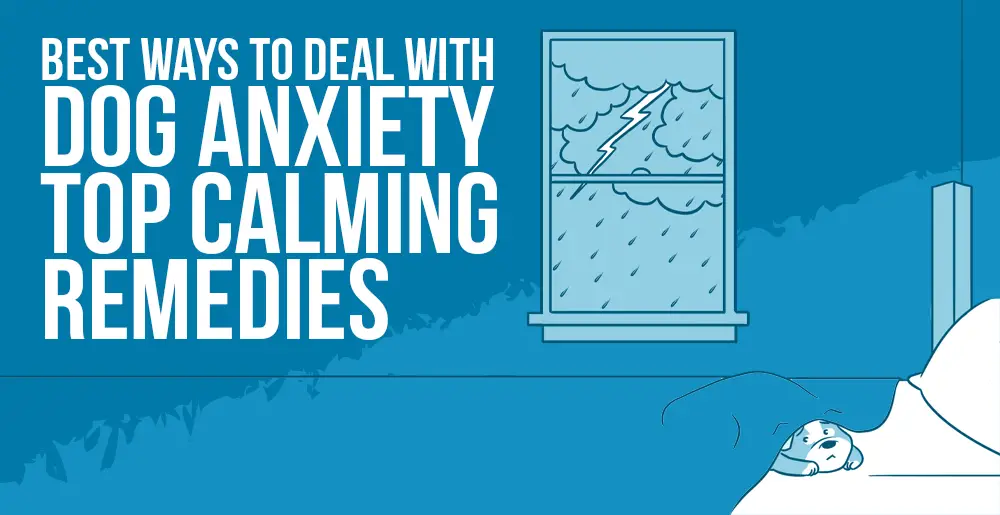
Coping with dog anxiety can be truly challenging.
For new owners, this might be an entirely new concept.
Yes…
And it’s painful to watch your little puppy wear himself out going hyper with anxiety.
But imagine being in his paws as he’s alone all day while you’re away at work.
You’d be surprised how common it is. And how much better most owners can do to treat it. And it’s not like it affects only specific breeds. Or only dogs in certain situations.
That’s not it at all.
Separation anxiety is probably the most well-known kind, but a dog can become anxious and hyper in other situations as well. And if you’re not careful about treating your dog quickly and properly, the trouble may not end just there.
Dog anxiety if left untreated can lead to long-term behavioral problems in your pup.
The treatment must involve a host of changes, as we will talk about below, veterinary check-ups, and careful monitoring on your part. In the end, understanding and preventing anxiety in your puppy is the ideal approach to keeping them calm.
Why is My Puppy Anxious and Hyper?
Just like a number of things or situations might trigger our anxiety, there could be a fair few reasons behind dog anxiety too.
But broadly speaking, one can point to three kinds of dog anxiety:
- Separation anxiety – probably the most common form of dog anxiety, and one which we discuss at length in this post.
- Fearfulness/jitteriness/hypersensitivity – this often happens when a dog is introduced to a new, unfamiliar environment or if she has suffered some past trauma.
- Anxiety due to sickness, old age, etc. – unhealthy or senior dogs could develop anxiety due to their deteriorating cognition and awareness, pain, memory lapses and other symptoms that manifest.
Understanding the probable reasons behind your dog’s anxiety is important since different forms of anxiety might require different approaches to treatment.
Depending on why your puppy is getting anxious or hyper, you and your vet will draw up a very particular plan to help him out.
For instance, separation anxiety treatment would mostly involve training activities and exercises to weed out those behavior patterns, and sometimes calming chews for dogs may also help if activities are out of the question.
On the other hand, anxiety stemming from health issues would need a bit more than exercise. Your puppy will need a certain bit of supplements to get better.
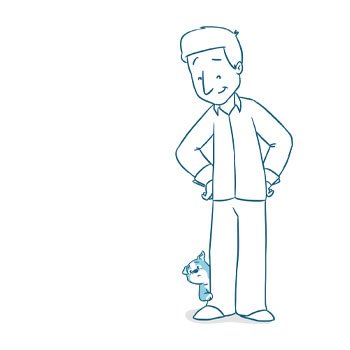 How Do I Know My Dog Has Anxiety?
How Do I Know My Dog Has Anxiety?
There are some pretty clear patterns of behavior and signs that signal dog anxiety issues. The most common are:
- Excessive whining or barking
- General restlessness
- Pacing
- Aggression
- Urinating or defecating in the house (despite being potty trained)
- Destructive behavior
- Panting
- Listlessness
- Drooling
- Out of character compulsive or repetitive behavior (such as constant pacing as mentioned above)
If you observe carefully, you will notice the unnatural patterns of behavior that may be caused by dog anxiety.
For instance, the occasional “accident” at home is not uncommon. Every puppy does that every so often. But losing control of their bladder or bowels every time you step out or due to some other trigger is a sure sign of anxiety.
Likewise, some playful aggression is alright during fun and games. But aggression coming from anxiety is completely different, and you can feel it instantly.
Same with destruction. The odd chewed shoes or socks are different from damaging doors, windows, and crates.
Top 5 Tips for Calming Stress and Anxiety in Dogs
Now that I know my dog has anxiety, how do I help him?
Well, there’s no universal formula!
As you know, each dog is different and will respond differently to each method.
But it’s important that you carefully consider your dog’s health and personality while deciding what to do. And it’s particularly crucial that you consult your vet beforehand.
1. Managing Your Puppy’s Environment
A lot of cases of dog anxiety are caused due to the perceived strangeness and threat of unfamiliar places, people, or animals.
And a surprising number of owners have unrealistic expectations that their dogs will quickly get used to such situations.
While some dogs are very open to changes in their environment, many aren’t. And it causes them real stress when they are suddenly placed in such situations.
Managing your puppy’s exposure to such changes is really important in making sure he doesn’t suffer from anxiety.
Introduce new pets gradually. The same goes for guests or new family members. If you’re moving to a new place, take your puppy on trips to familiarise him with the new setting, gradually increasing the length of the trips.
Be mindful of how your dog would feel in various situations, and it becomes easier to see why he’s behaving in a particular way.
2. Your Own Energy is Also Important
Dogs being pack animals are greatly influenced by the demeanor and energy levels of pack leaders.
That’s you for your puppy. You’re the leader of the pack.
If you exhibit stress or negative energy, your puppy is bound to sense and react to it.
So naturally, anger and resentment are no way to deal with your dog’s anxiety. Show compassion and care, and be calm and assertive to indicate that things are alright.
This would go a long way towards calming an anxious dog.
3. Proper Exercise and Nutrition – Essentials for Curing Dog Anxiety
In fact, poor exercise and nutrition are often the causes of dog anxiety in a surprising number of cases.
Imagine forcibly being cooped up at home all day while your family members enter and leave at will. Or being tied up in the garden all the time, watching the dogs next door or in the park having a ball.
That cannot be good for anyone’s mental health, let alone a sensitive bundle of energy that is your puppy!
Every dog needs a whole lot of time during the day for fun and games where they can run and burn all their pent-up energy.
Training exercises to focus your puppy’s attention, and also condition them to become desensitized to the things that trigger their anxiety are a great path to a long-term cure. We highly recommend these toys to keep him occupied for several hours a day.
Similarly, a wholesome, natural diet in at least 4-5 square meals a day is essential for a puppy to stay spirited and healthy.
Avoid food with synthetic ingredients, or too many supplements. If you feel your pup absolutely needs them, make sure to take it with the vet before you change up his diet.
Moreover, we offer these tips on calming foods that can assist you in determining the best diet to help your dog unwind.
4. Socializing with Other Dogs or People
Pack creatures can never be truly happy on their own. Especially growing puppies.
The company of other dogs, or at least humans, is essential to their mental development. It shapes their personality and behavior in positive ways.
So make sure you keep taking opportunities to introduce your pup to other dogs, people, and even new places to help their growth.
5. Alternative Treatments
Now that we’ve run through the gamut of natural remedies for calming an anxious dog, let’s look at some “alternative” dog anxiety treatments for when you might need additional help.
Of course, you could always turn to your vet for a prescription of anti-anxiety pills or over the counter calming dog chews to deal with stressful episodes.
- Certain herbs like valerian and chamomile are known to be effective natural remedies to help with dog anxiety. These often are ingredients in calming chews for dogs or calming treats, making for a soothing and organic dog calming aid.
- Certain essential oils are also known to have a nice calming effect on dogs. However, be very mindful that some essential oils can, in fact, be highly toxic to your puppy. So it’s crucial that you clear things with your vet before you start rubbing some strange cocktail of oils on your pup’s face, or jump into aromatherapy, etc.
- Calming Chews for dogs with good nutritional value and devoid of any harmful synthetic ingredients are especially effective for when you’re too busy to entirely focus your attention on your pup for extended hours.
- Similarly, thunder shirts and similar calming products can be very helpful for when your puppy is having a particularly intense episode. And being a non-invasive, drug-free approach makes it more appealing for owners too.
We hope you found this post on how to deal with dog anxiety helpful for when your puppy has an episode. We have many more dog tips here if you want to learn more about your dog. If you have any tips or suggestions of your own, do mention them in the comments section below!

